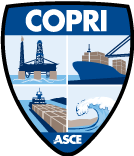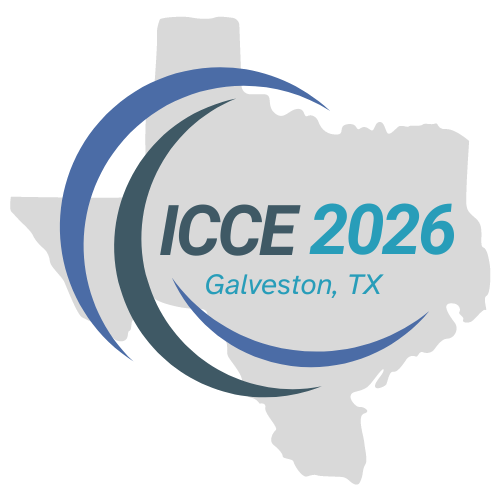Join ASCE | EWRI as a member today, and save on registration rates: (Membership is free to current students)
The fees associated with the short courses are intentionally set at a level that is reasonable for covering facility fees while aiming for inclusion of a wide range of attendees. Participants can expect an enriching learning experience and quality instruction through the available short courses.
Short Course: Climate Change Adaptation in Coastal Regions and Port Infrastructure
Sunday, May 17, 2026 | 8:00 am – 4:00 pm
$225 Non-Members | $175 Members | $100 Students with Active ASCE Memberships
7.0 PDHs
(ticket required)
This short course will provide a comprehensive methodological overview of how we approach coastal adaptation in Spain, as well as in projects we’ve carried out in Central and South America.
We will discuss practical case studies such as:
• Urban coastal areas (e.g., the adaptation of the Lima-Callao metropolitan area and the Havana Malecón)
• Coastal ecosystems (e.g., mangrove restoration and adaptation in Panama)
• Harbour adaptation plans (e.g. including screen tools we have developed for ICF and high resolution adaptation plans for commercial Spanish ports)
• And our broader experience in developing integrated, multisectoral coastal adaptation plans along the Spanish coast.
Conveners: Javier López Lara, Head of Climate Risks, Adaptation and Resilience Group, IHCantabria
Short Course: Modeling Development of Coastal Dunes for Coastal Engineering Applications
Sunday, May 17, 2026 | 8:00 am – 4:00 pm
$225 Non-Members | $175 Members | $100 Students with Active ASCE Memberships
7.0 PDHs
(ticket required)
This course will give an introduction to numerical modeling of coastal aeolian transport processes and the morphological evolution of beaches and dunes. Process based models are available that simulate aeolian transport, erosion, deposition in coastal environments accounting for vegetation development and sediment availability with and without the presence of hard structures.
Examples of these models are: (AeoLiS, CDM and the DuneFront-Digital Twin)
The course introduces the relevant physical processes that are included in the AeoLiS model. The course offers hands-on examples for modelers with different levels of experience (suitable for beginning or advanced modelers alike). The course includes the concepts and simulation of multi-fraction aeolian transport, aeolian bedform formation, sediment-vegetation interaction, and surface moisture processes on hourly to decadal timescales. These processes and scales are important for engineering applications, and we aim to illustrate this using the Galveston Ike-Dike case study but other cases can be considered as well. Participants are also welcome to bring their own case studies and models to discuss with the group. The course material is written in Python, but no previous programming knowledge is required.
Conveners: Sierd de Vries, Ph.D., Associate Professor, Delft University of Technology; Filipe Galiforni da Silva, Ph.D., Delft University of Technology; Caroline Hallin, Ph.D., Associate Professor, Lund University; Meagan Wengrove, Ph.D., Oregon State University; Selwyn Heminway, Oregon State University.
Short Course: Modeling Compound Flooding with SFINCS
Sunday, May 17, 2026 | 8:00 am – 4:00 pm
$225 Non-Members | $175 Members | $100 Students with Active ASCE Memberships
7.0 PDHs
(ticket required)
This short course introduces participants to SFINCS (Super-Fast INundation of CoastS), a fast flood model developed by Deltares to simulate compound flooding from tides, surge, rainfall, and rivers. SFINCS combines high computational efficiency with robust accuracy, making it well-suited for rapid assessments, large-scale applications, and early warning systems.
Through a mix of lectures and hands-on exercises, participants will:
• Gain an understanding of the physical processes driving compound flooding.
• Learn how SFINCS differs from traditional full-physics models and when to apply it.
• Set up and run an SFINCS model to explore coastal and overland flooding scenarios.
• Practice interpreting results for research, planning, and risk management.
The course is designed for engineers, scientists, and students with prior modeling or programming experience who are interested in applying SFINCS to real-world challenges in coastal resilience and flood risk reduction.
Conveners: Kees Nederhoff, Ph.D., Coastal Scientist, Deltares USA
Short Course: Hydraulic Structures and Storm Surge Barriers
Sunday, May 17, 2026 | 8:00 am – 4:00 pm
$225 Non-Members | $175 Members | $100 Students with Active ASCE Memberships
7.0 PDHs
(ticket required)
Storm surge barriers are among the most complex and consequential coastal defense structures ever built. Designed to close during extreme events, they prevent storm-driven water from pushing into bays, rivers, and estuaries—yet remain open during normal conditions to maintain navigation, tidal exchange, and ecosystem function. Their dual mission makes them engineering puzzles of the highest order.
This short course introduces participants to the technical foundations and practical decision-making that drive storm surge barrier design. Attendees will gain a working understanding of the hydraulic, structural, geotechnical, and operational considerations that shape barrier concepts across the world. Core modules cover key theoretical principles, probabilistic design methods, environmental forcing interactions, and system-scale performance assessment.
Drawing on real examples from major international barrier systems, the course highlights critical design drivers such as navigational demands, ecological impacts, sediment dynamics, operational reliability, and life-cycle maintenance. Case studies emphasize where past designs have succeeded, where they faltered, and what those lessons imply for next-generation systems. Special attention is given to current planning efforts for the proposed Galveston storm surge barrier, illustrating how engineering science, local constraints, and stakeholder priorities converge in practice.
The course concludes with a collaborative, hands-on design session. Participants will work in teams to apply concepts from the lectures—balancing hydraulic loads, functional requirements, environmental considerations, and uncertainty—to develop a preliminary barrier solution concept for a realistic coastal site.
This short course is designed for coastal scientists, engineers, planners, and managers, including students and early career professionals, as well as seasoned veterans, who want both solid technical grounding and practical insight into the evolving art and science of storm surge barrier design, operations, and management.
Conveners: Leslie Mooyaart, TU Delft, Jens Figlus, Texas A&M University, Marcel Hertogh, TU Delft, Alessandro Antonini, TU Delft, Marc Walraven, Rijkswaterstaat, Stefan Pluis, Rijkswaterstaat, Charles Schelpe, Jacobs, Marius Sokolewicz, Haskoning, Himangshu Das. U.S. Army Corps of Engineers
Technical Workshop: International Workshop on Coastal Storm Reconnaissance: How to Optimize Field Data Collection
Sunday, May 17, 2026 | 12:00 pm – 5:00 pm
(Free: Invitation Only | Lunch on Own)
This free technical workshop brings together an international and cross-disciplinary group of field team members, modelers, and agency stakeholders to share experiences from recent post-storm reconnaissance efforts. The workshop aims to identify operational challenges, evaluate coordination and instrumentation strategies, and co-develop recommendations for improving future rapid response campaigns.
This event is intended for the broader coastal hazards and storm response community, not limited to any specific project or region.
Conveners: Dr.-Ing Alexandra Schueller, M.ASCE, Endowed Professor, University of Applied Sciences Koblenz & Guest Investigator, Woods Hole Oceanographic Institution (WHOI); Britt Raubenheimer, Ph.D., M.ASCE, Senior Scientist, Woods Hole Oceanographic Institution (WHOI); Nina Stark, Ph.D., M.ASCE, Associate Professor, University of Florida; and Prof. Ian Turner, Ph.D., Professor, University of New South Wales, Sydney
* limited to 50 seats

